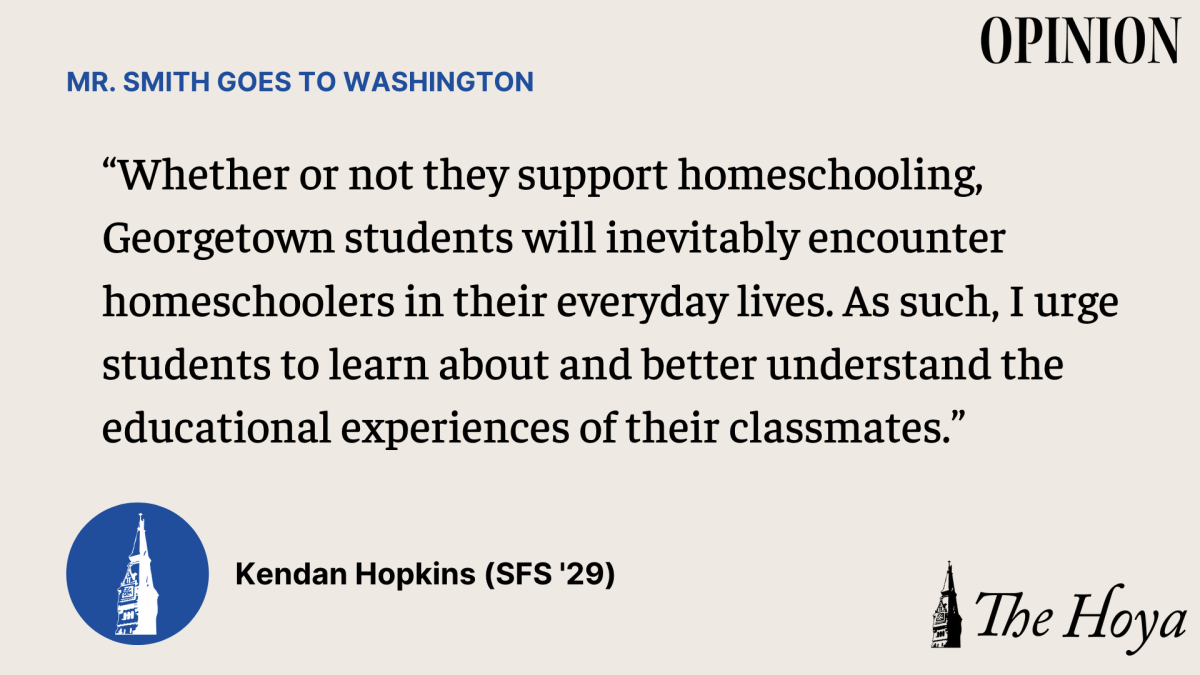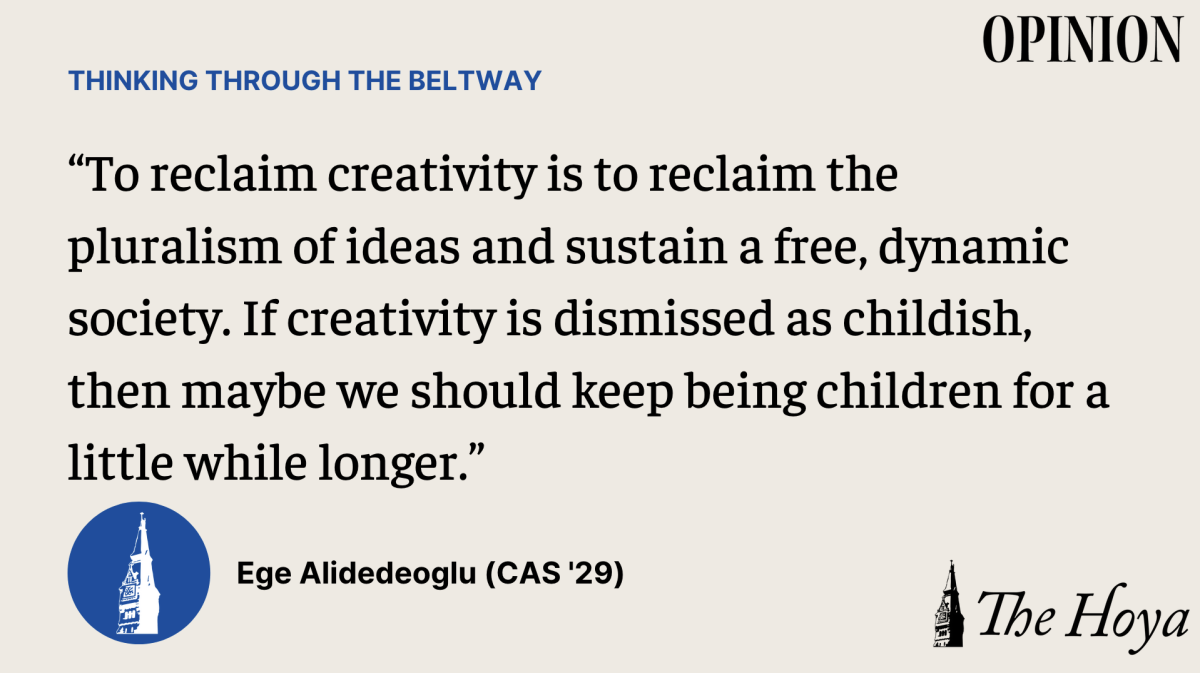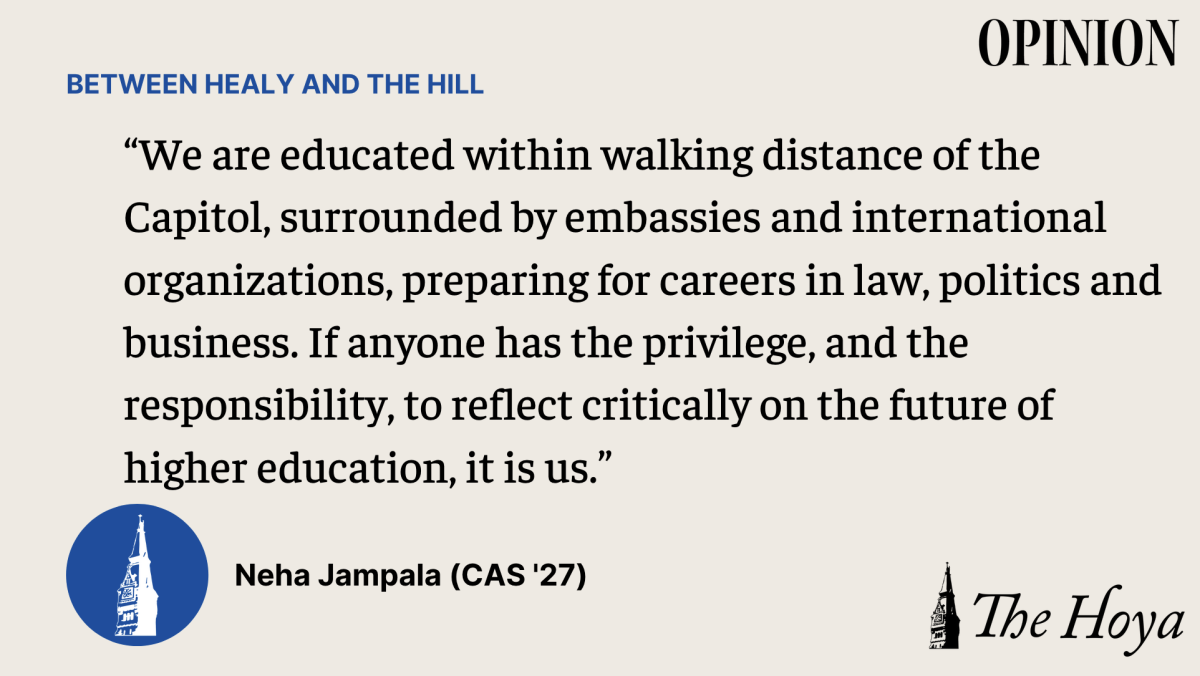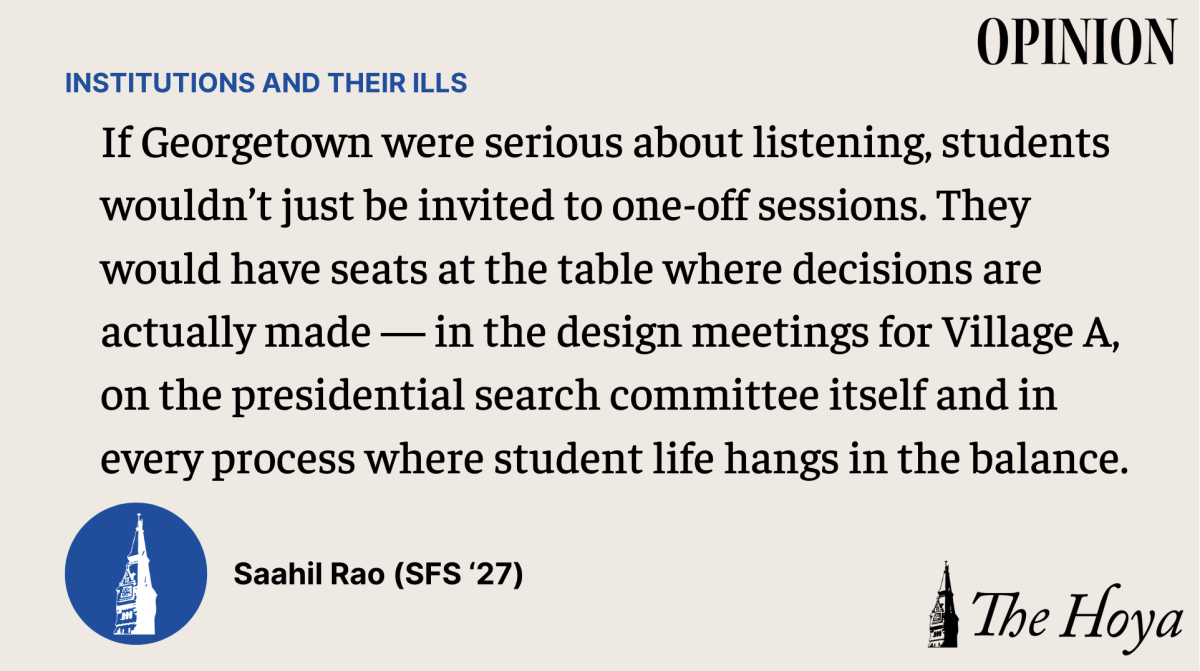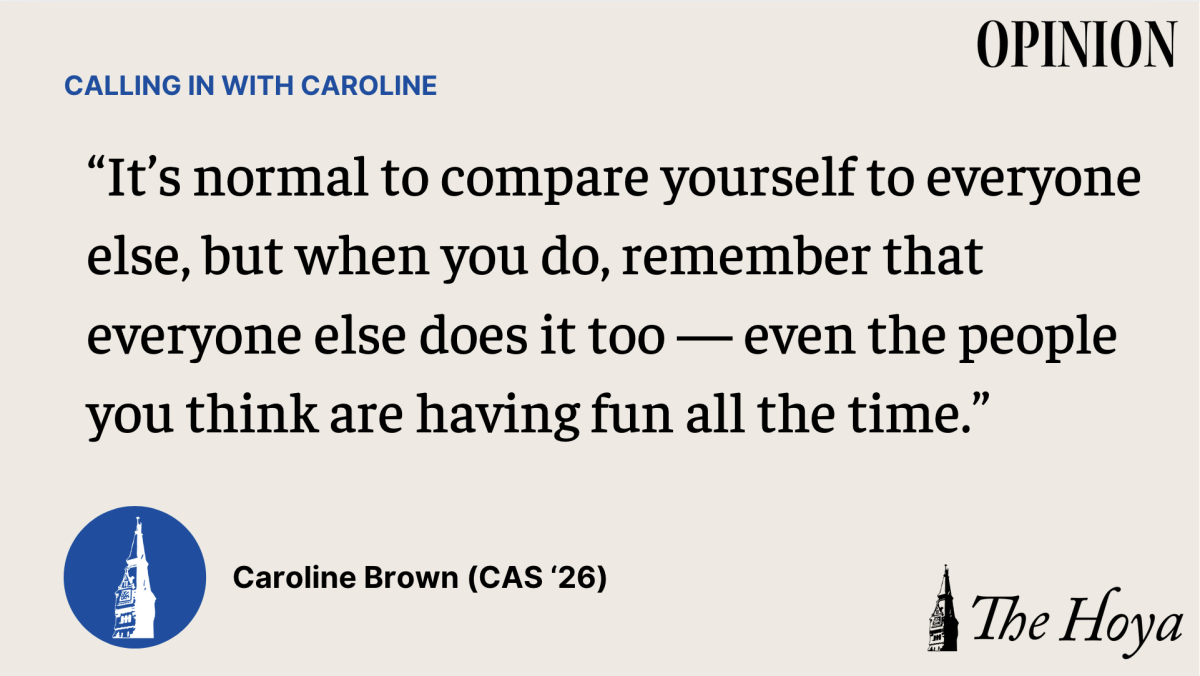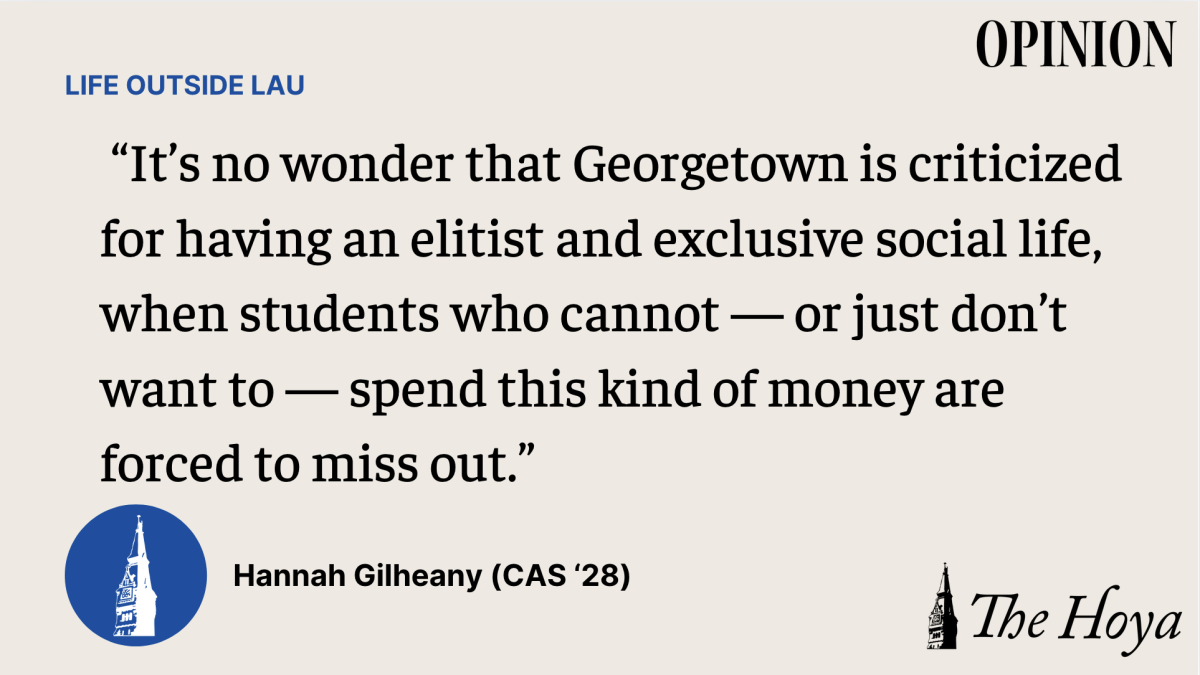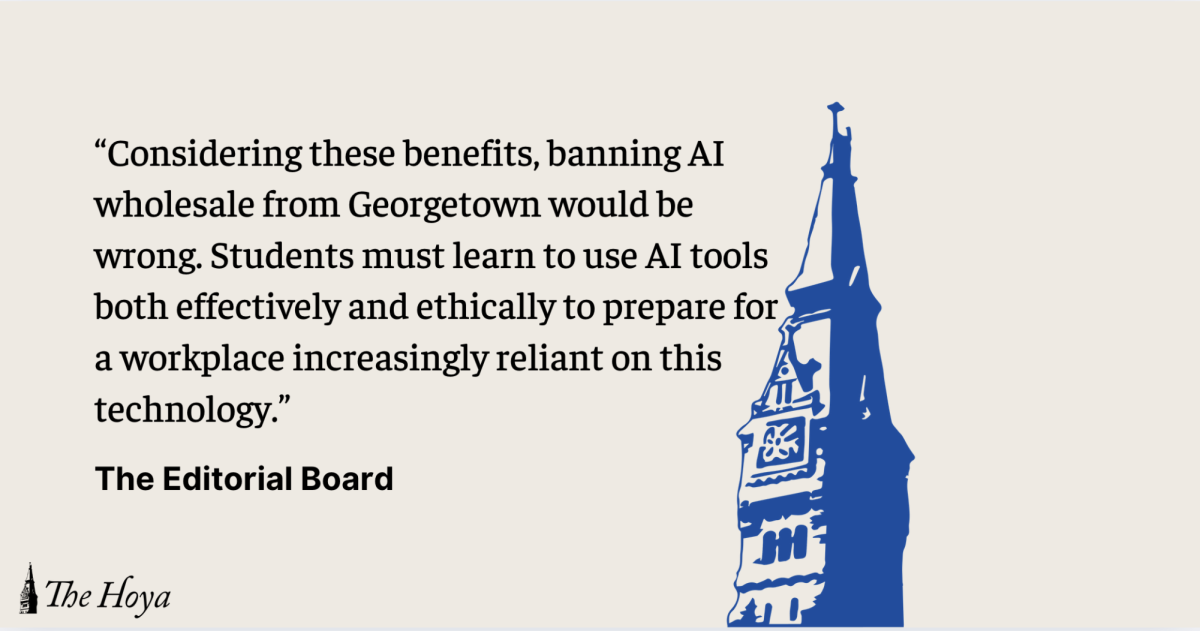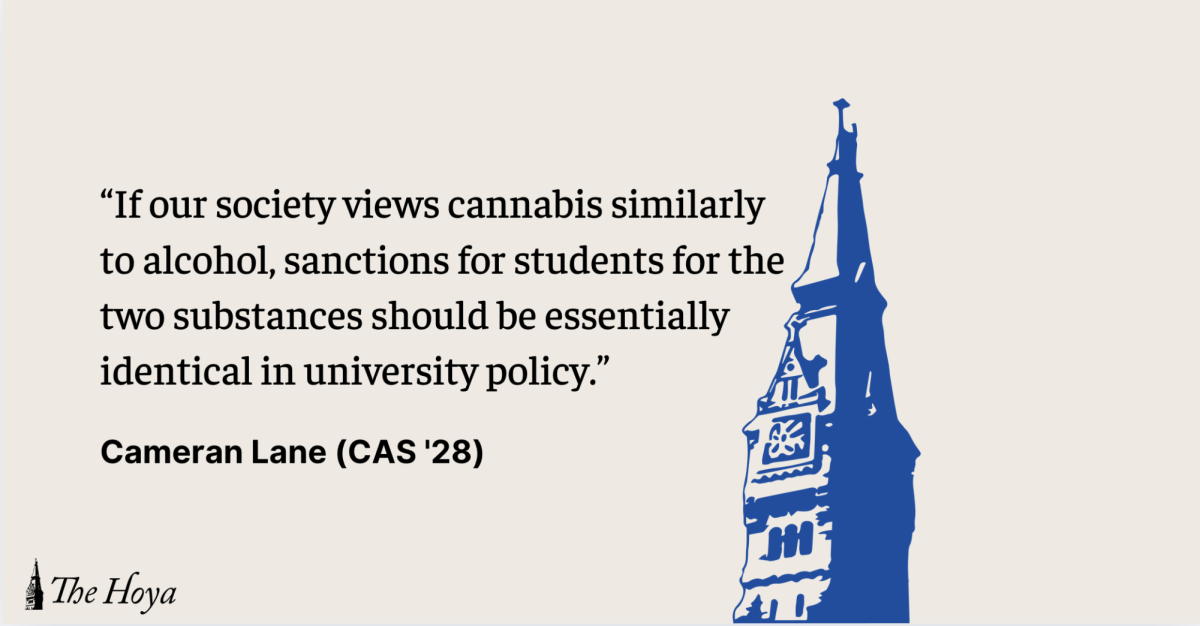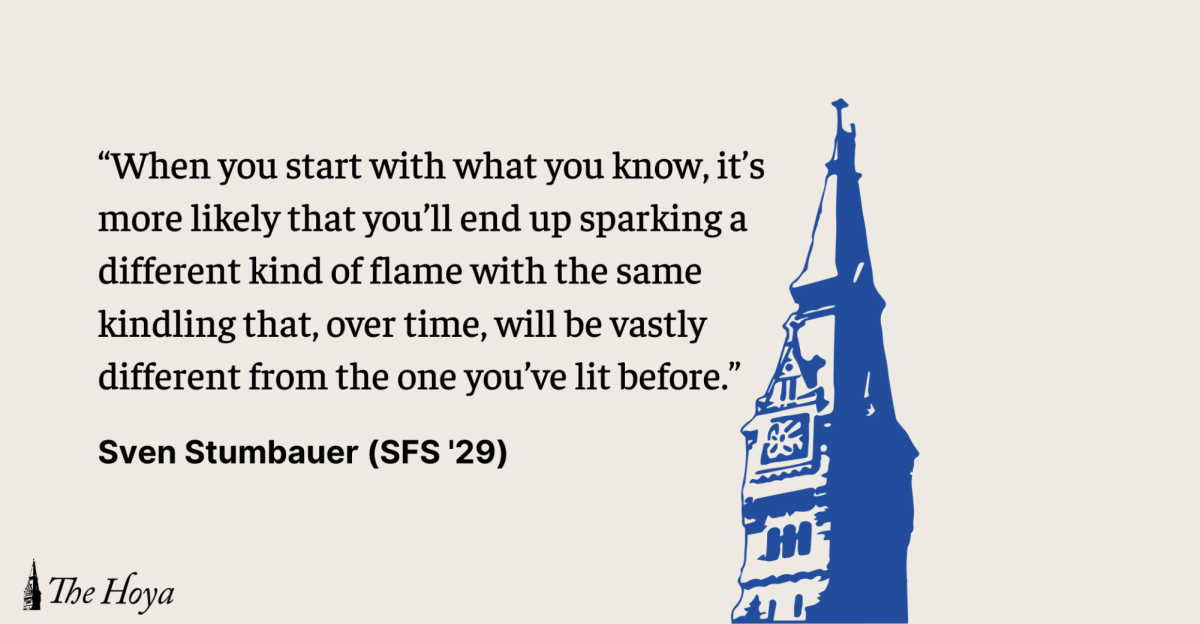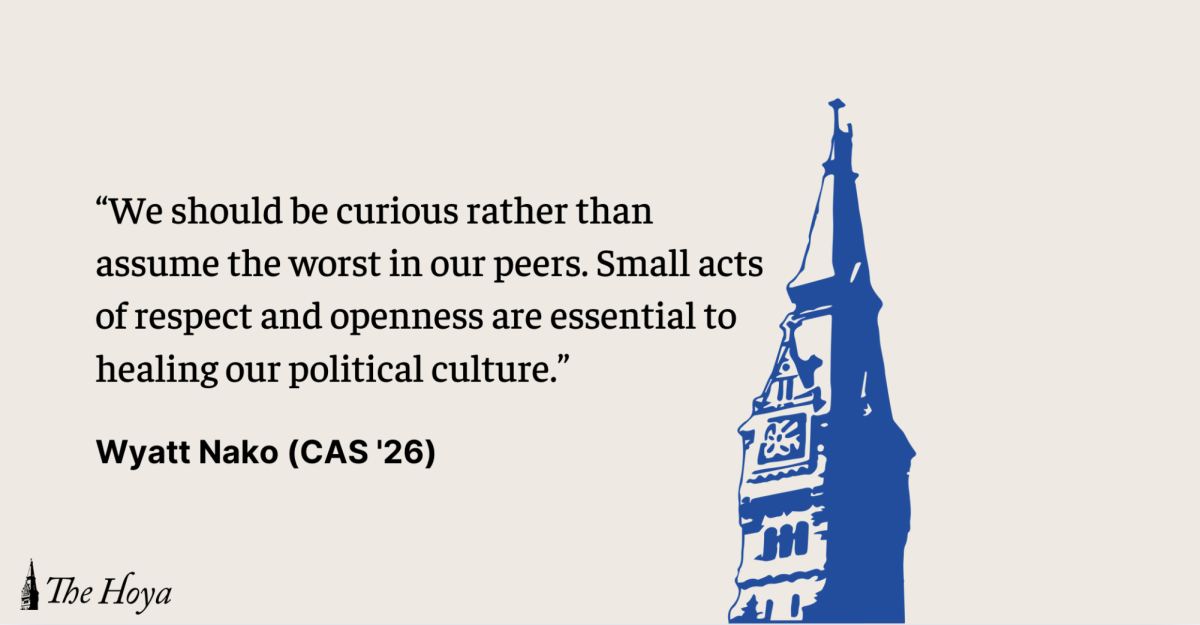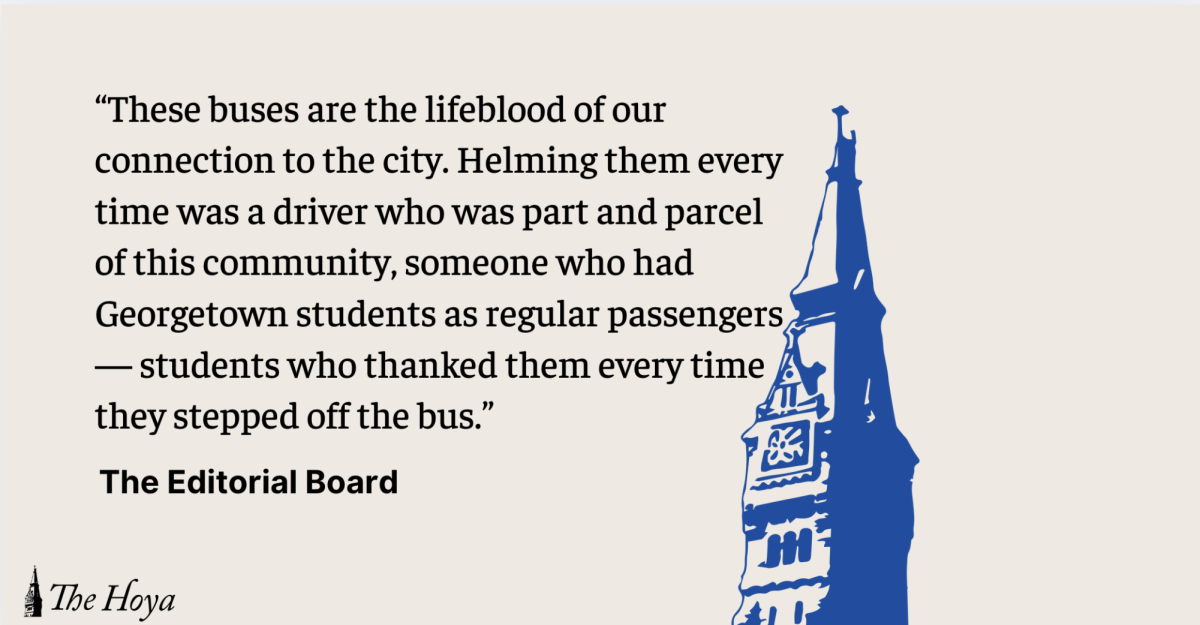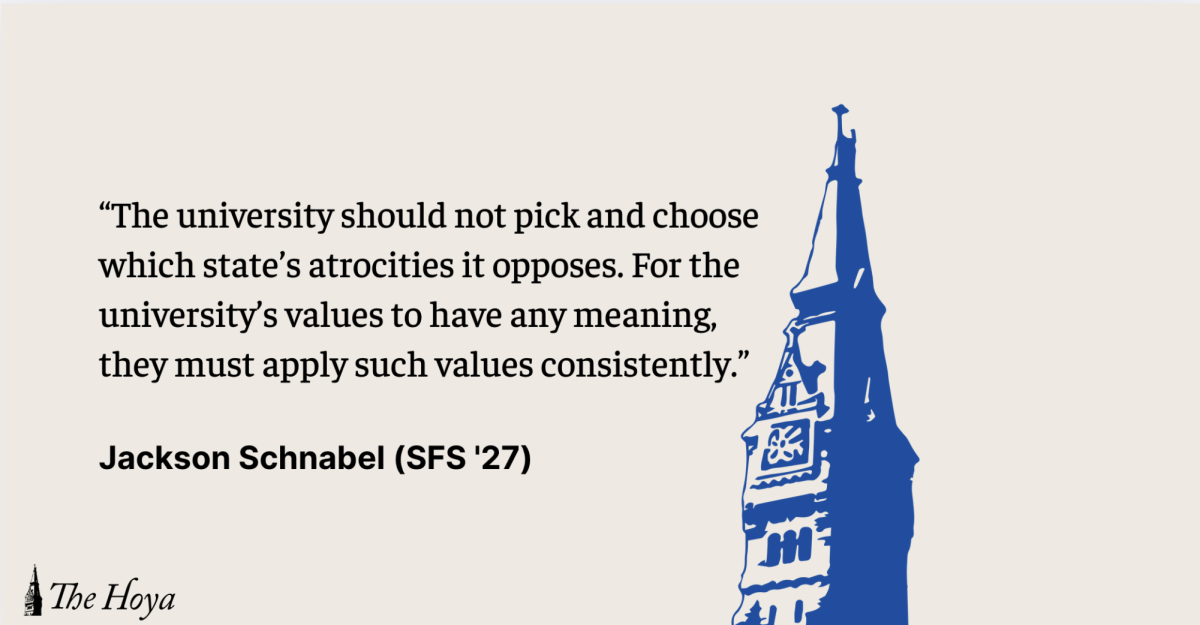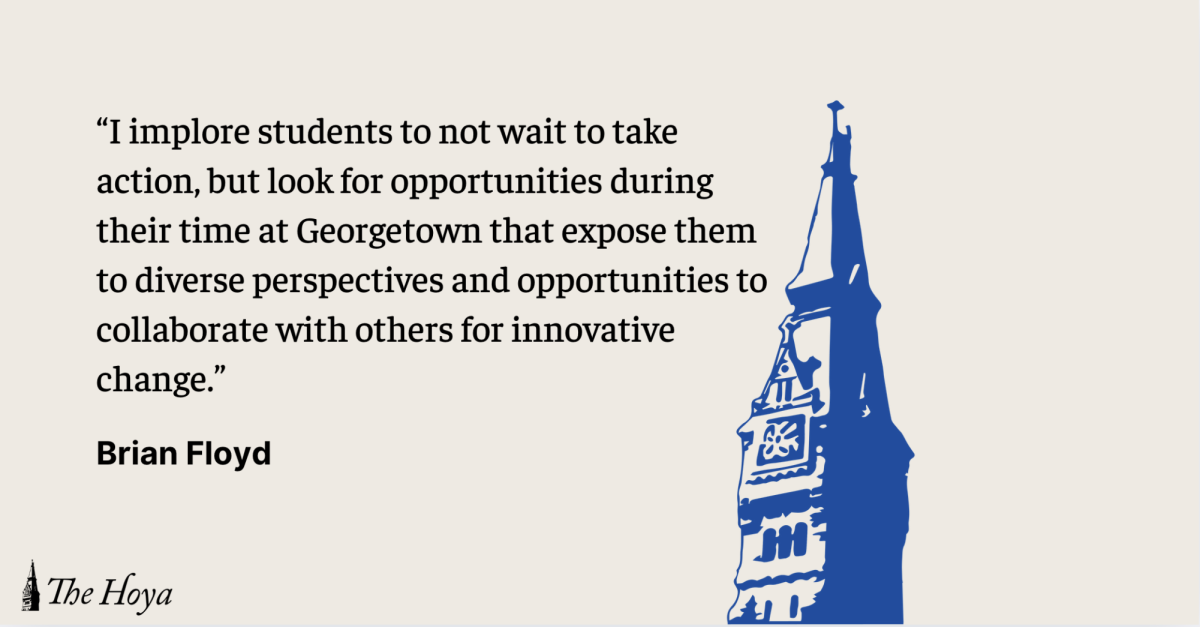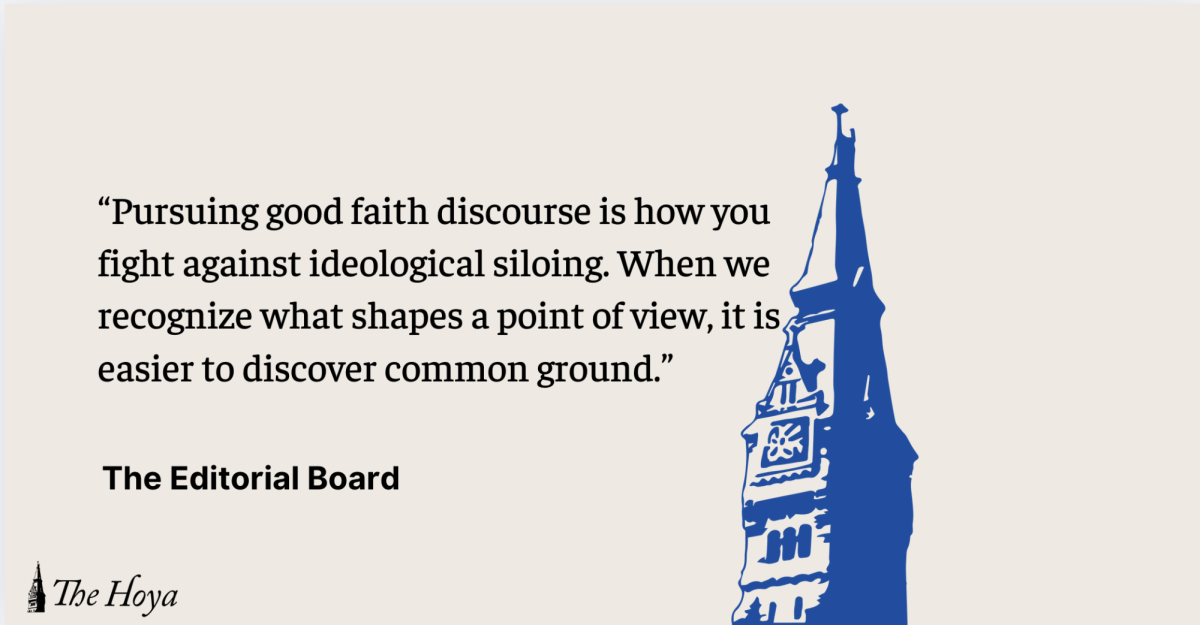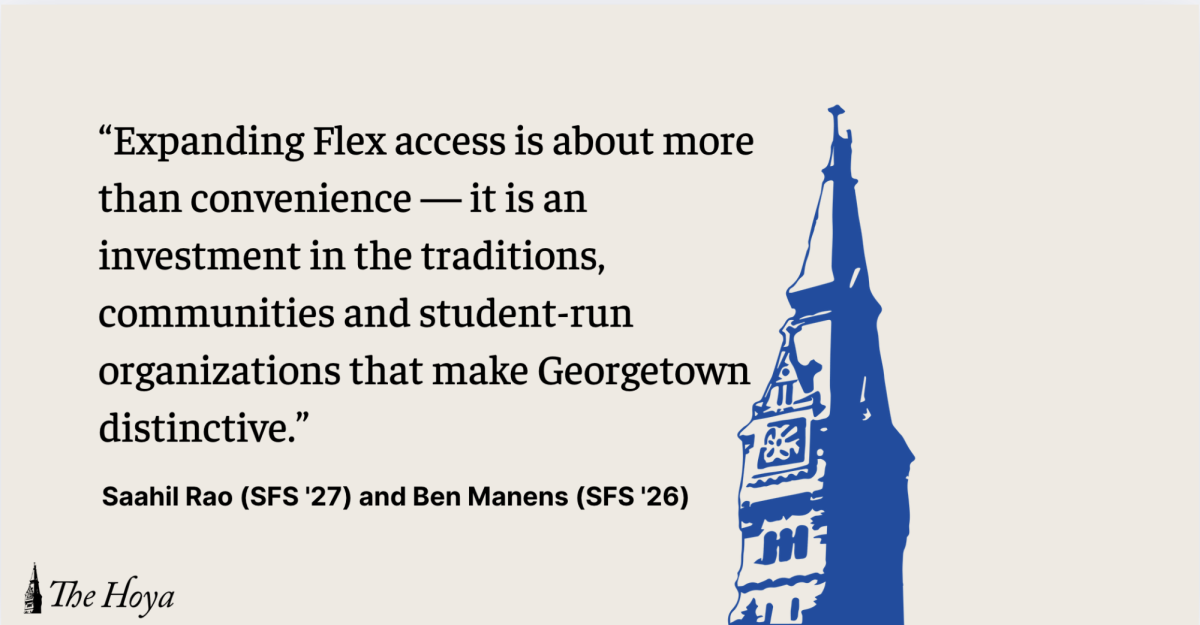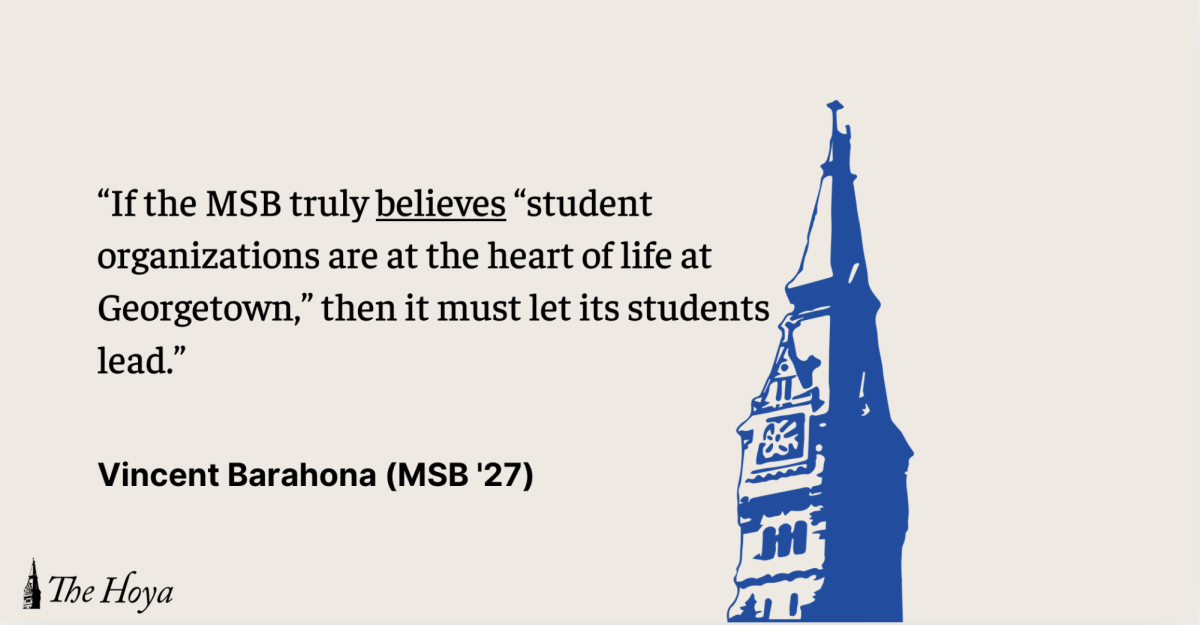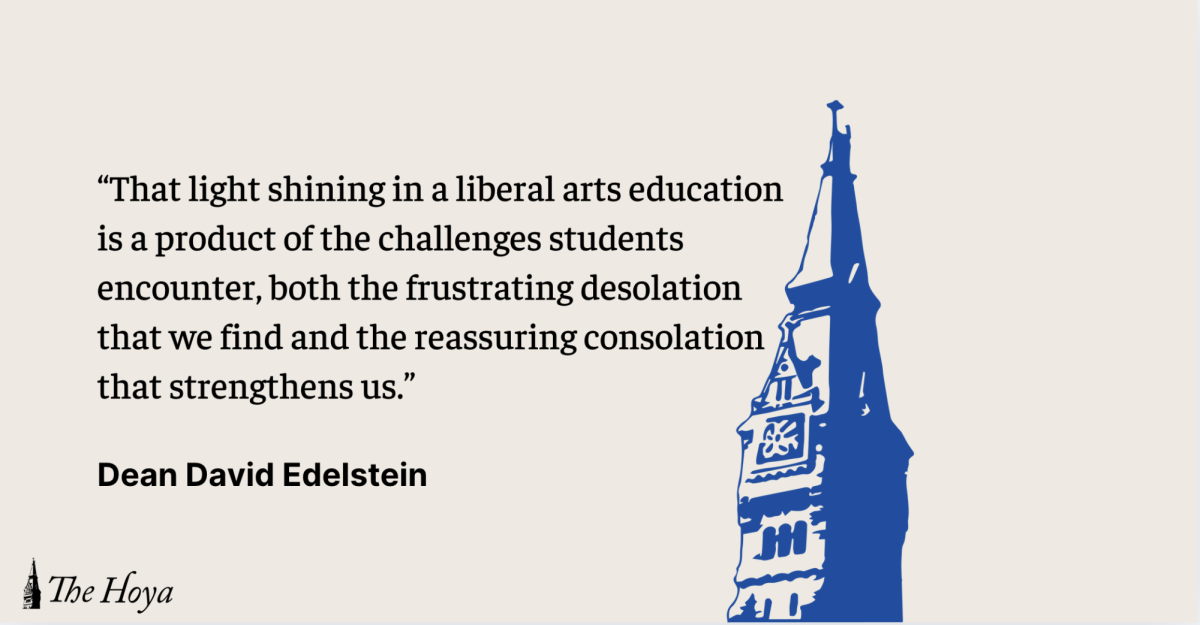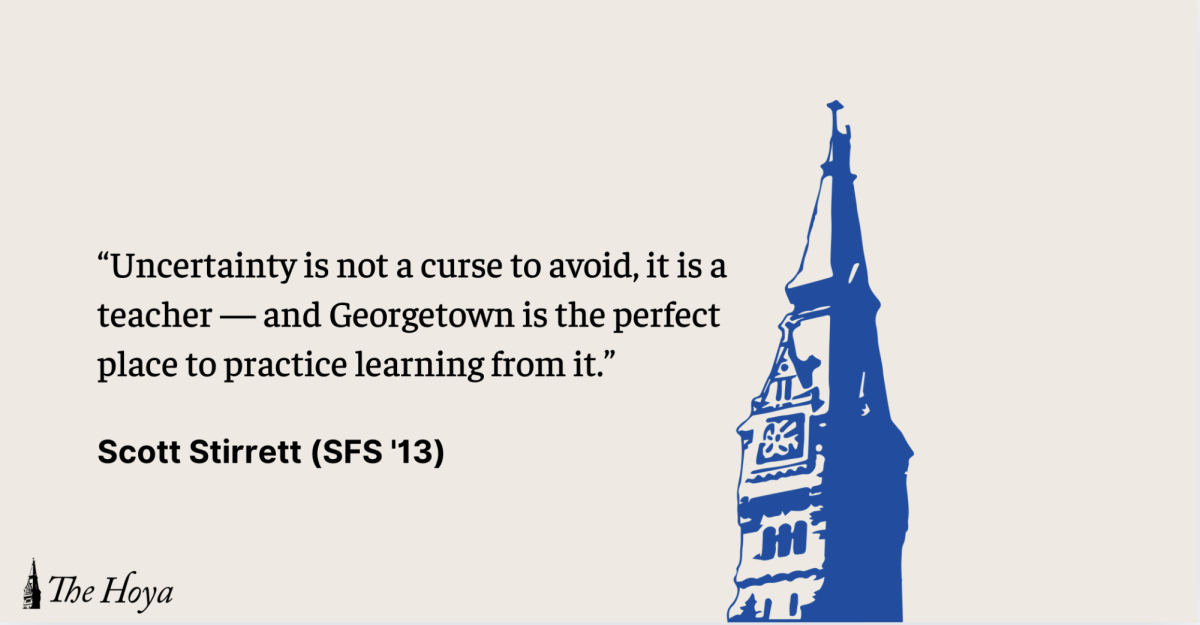Vats of ink have been spilled in contemplation of Georgetown University’s extended divorce with H*yas for Choice. It is an issue that, while frequently covered, still deserves our attention.
In fact, it still urgently deserves our attention, something underscored by H*yas for Choice’s current predicament as it once again faces unwarranted institutional hurdles in organizing an informational event on the status of abortion rights in the lead-up to the 2024 election.
While Georgetown is a Catholic institution, it is also a university — a title it must continue to live up to and cannot take for granted. In other words, as an academic institution, Georgetown must stay committed to its values of academic freedom and open discourse.
While full recognition of H*yas for Choice appears untenable due to Georgetown’s Jesuit identity, the organization should at least have the right to reserve all university spaces for its meetings and events alike. The current prohibition on doing so is not only out of step with the university’s proclaimed values but also nothing more than an aimless inconvenience.
Georgetown’s policy on speech and expression begins with a preamble, written in 1989 by Rev. James Walsh, S.J. — who was, at the time, a professor of theology. Important to understand is the preamble’s opening line: Georgetown’s speech policy is firmly grounded in “a certain understanding of what a university is.” This certain understanding depicts a place defined by the “untrammeled expression of ideas and information,” where “discourse is open and candid.” Toward its end, the preamble even offers a stark and clear warning: “To forbid or limit discourse contradicts everything the university stands for.”
It’s an unambiguous, powerful idea. I believe it is this idea that led the then-Dean of Student Affairs John J. DeGioia (CAS ’79, GRD ’95) to take the brave, controversial step to initially recognize GU Choice — the predecessor to today’s H*yas for Choice — in March 1991. Stemming from the recognition of “the need for open academic debate at the university,” the club was granted access to benefits under the agreement that it would advocate “only discussion, not action.”
The decision was thoroughly condemned.
Cardinal James A. Hickey, the most senior Catholic official in the Archdiocese of Washington from 1980 to 2000, wrote that the group’s recognition was “inconsistent with the aims of an institution of higher learning that has a Catholic identity.” In Fall 1991, 1,500 Georgetown students and alumni even attempted to strip the university of its Catholic status, requesting that the Holy See do so in a petition.
This sustained pressure, combined with the narrowness of the no-advocacy-only-discussion agreement, led to the collapse of DeGioia and GU Choices’ arrangement in April 1992. Citing the group’s postcarding for a pro-abortion bill and informal organizing for an abortion rights march, the university revoked the group’s recognition, leaving them without school funding and the ability to reserve non-classroom spaces. GU Choice has existed as H*yas for Choice since, bringing us to the current status quo.
In the present day, H*yas for Choice is wholly unaffiliated from the university, and thus prevented from using the trademarked term “hoya.” No longer able to receive school funding, the group relies on private donations to finance its operations. It is also unable to access the Georgetown Event Management Services (GEMS) room request portal — mainly used to reserve the campus’ most coveted locations, such as Gaston Hall, Copley Formal Lounge and the Intercultural Center Auditorium for events — on the GEMS website.
Despite this, H*yas for Choice last spring hosted a highly-covered abortion rights panel in Lohrfink Auditorium, one of the university’s flagship spaces for large group events. In order to secure such a prominent venue, the group had to make use of a strategic workaround. For workshops and larger events, H*yas for Choice is forced to co-sponsor with other groups. In this case, it partnered with Georgetown University College Democrats (GUCD), an officially recognized club, in order to gain access to the section of GEMS needed to reserve non-classroom spaces.
This all renders the current policy regime silly and pointless. The organization is able to put on large events due to the thinly veiled workaround of event co-sponsorship.
Thus, the current rule only serves to create an unnecessary, time-consuming hurdle. While originally intended to be substantive, it now only has the effect of being trivial. If Georgetown truly opposed the existence of all clubs engaging in pro-abortion activism, then GUCD — which regularly holds phone banks for candidates that support expanding abortion access — would lose its recognition immediately. Additionally, the rule does not meaningfully limit the group’s activism in any way, as it regularly holds general body meetings and workshops on campus. It is nothing but a bureaucratic hurdle (one that the group consistently overcomes), forcing its leadership to waste time and energy finding spaces as well as cosponsors.
Finally, and most importantly, prohibiting H*yas for Choice from reserving rooms runs starkly against Georgetown’s “certain understanding of what a university is.” If our university is truly a university — one that believes in the “untrammeled expression of ideas and information” — it has no need to create meaningless, ineffective and time-wasting obstacles for a group engaging in that exact kind of dialogue it claims to desire. H*yas for Choice is currently struggling to finalize a date and time for a nonpartisan, informational event (that it will invariably have) on reproductive rights in the 2024 election, precisely because of its prohibition on reserving rooms.
Right now, the university administration has the opportunity to extend an olive branch and close a chapter that was opened 32 years ago when the administration withdrew recognition of GU Choice. Times have changed. From my understanding, the club does not need university funding. It does not desire its endorsement. It would, though, greatly benefit from the right to reserve rooms.
By just granting H*yas for Choice a GEMS login, Georgetown can show that a Catholic university can engage with challenging ideas without compromising its values. It can begin living up to the words Rev. Walsh wrote in 1989 when he warned not “to forbid or limit discourse.” The administration currently has the chance to end a pointless policy and finally embody its own understanding of what it means to be a university.
We should all hope they take it.
Saahil Rao is a sophomore in the School of Foreign Service.



